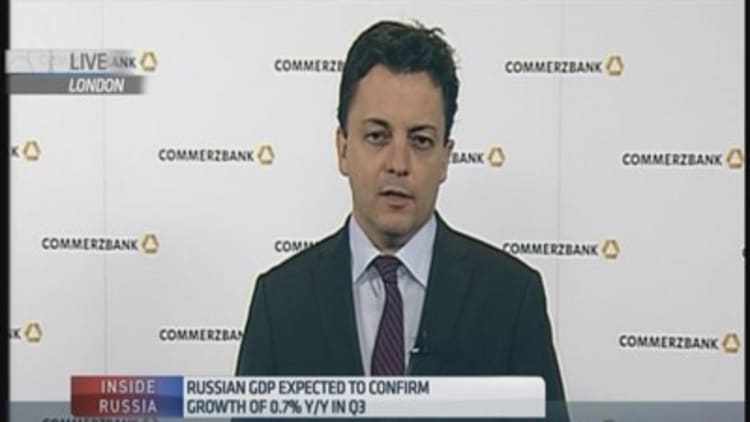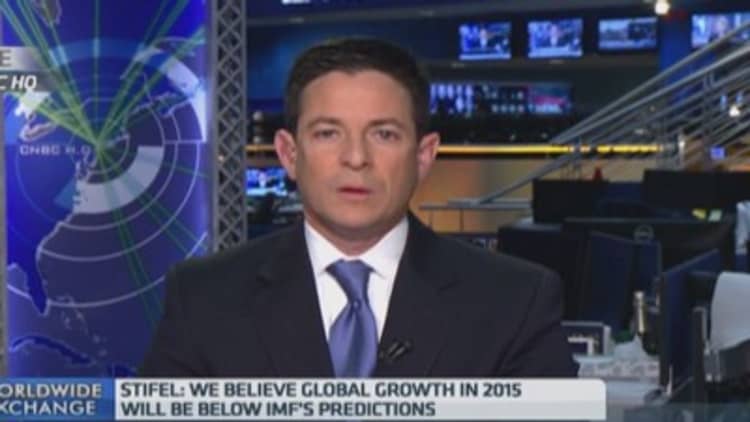
Russia's ruble strengthened on Thursday and its benchmark stock market hit its highest point all year, but analysts warned that it was premature to talk about a recovery in the country.
The Micex share index reached 1,532 in early London trading, up over 0.5 percent on the day, and more than 20 percent higher than its 2014 low in March. By contrast, all major European benchmarks were trading lower on Thursday morning.
The ruble also strengthened to trade up around 0.5 percent against the dollar, at 46.67.
Read MoreWhy Putin is buying so much gold
The country's stock market and currency have been on a roller-coaster ride since Russia annexed Crimea in March this year. Sanctions imposed by the West and uncertainty surrounding conflict in eastern Ukraine have hit investor sentiment and led to massive outflows from the country.
Volatility in the ruble's price has stabilized since the beginning of the month, however, after Russia's central bank abandoned the ruble's trading band, meaning the currency now floats freely. It also reiterated that it was prepared to further support the ruble in the foreign exchange market if needed.
"It's calmed down now and the central bank seems to be one step ahead of things, which is very good," Simon Quijano-Evans, head of emerging markets research at Commerzbank, told CNBC on Thursday.
Read MoreRussia's VTB Q3 net profit falls 98% year-on-year
Liza Ermolenko, emerging markets economist at Capital Economics, said it was unsurprising that the ruble had ticked slightly higher, given the amount it has fallen over recent months.
"However, given the economic backdrop in Russia it's unlikely to stage an impressive recovery," she told CNBC. "The ruble was expected to stabilize, but it's unlikely that it's going to jump back to where it was a year ago."
The ruble was also supported Thursday by end-of-month taxes, which see exporters sell foreign currency and buy the ruble.

Despite its slight recovery, the ruble remains down over 40 percent against the dollar year-to-date, and this broader weakness has been credited with giving the Micex a slight boost. A weaker ruble makes Russia's exports cheaper in the global market, boosting competitiveness and aiding domestic companies.
Read MorePutin says United States wants to subdue Russia
But Commerzbank's Quijano-Evans outlined the mixed fortunes of a weaker ruble.
"(It) is good for exports on the one hand," he said. "But on the other hand, everything that's denominated in ruble has actually increased, whether it's goods in Russia - in other words inflation; whether it's the government revenues, or whether it's the Micex."
He added: "If you look at the Micex on dollar base then obviously the picture looks very different."
Later on Thursday, Moscow is expected to confirm that economic growth in the country slowed to 0.7 percent year-on-year in the third quarter. Last month, the International Monetary Fund halved its gross domestic product (GDP) forecast for Russia in 2015 to 0.5 percent.
Looking ahead, Ermolenko said that financial markets looked set to remain volatile in Russia.
"The EU is talking about further sanctions – that's going to have an effect, as are developments in Ukraine," she said. "It's premature to talk about a Russian recovery."
- By CNBC Katrina Bishop


